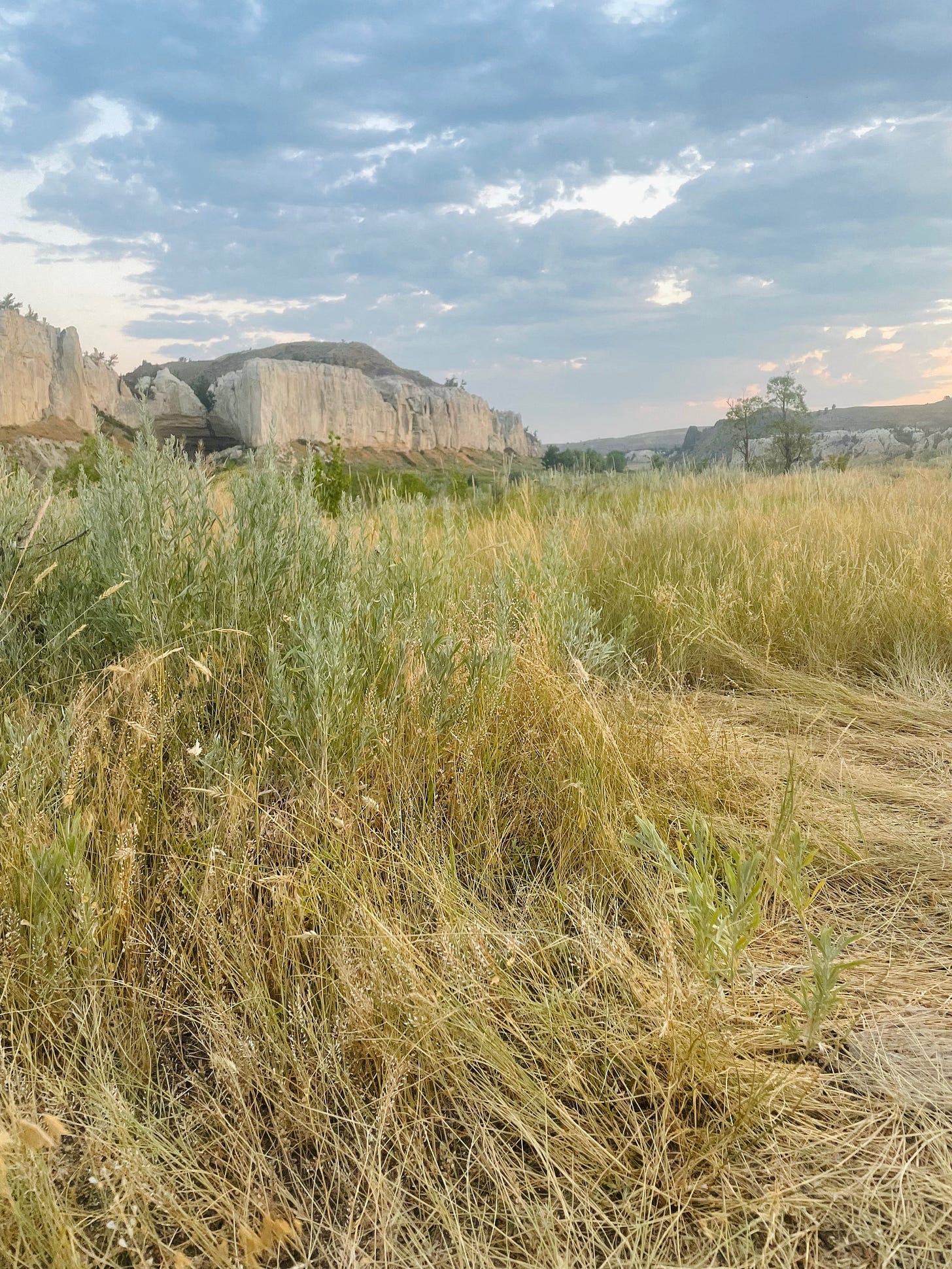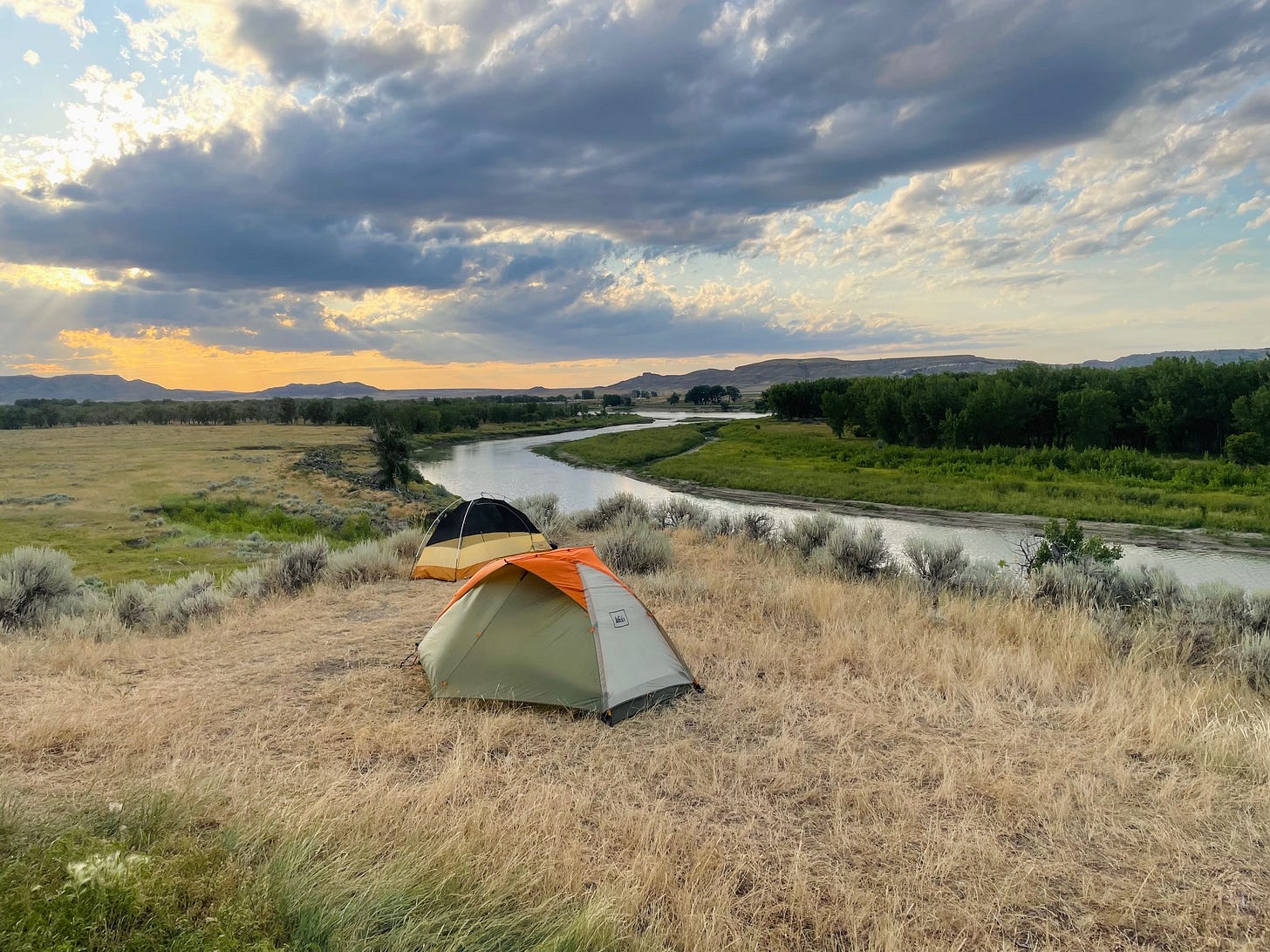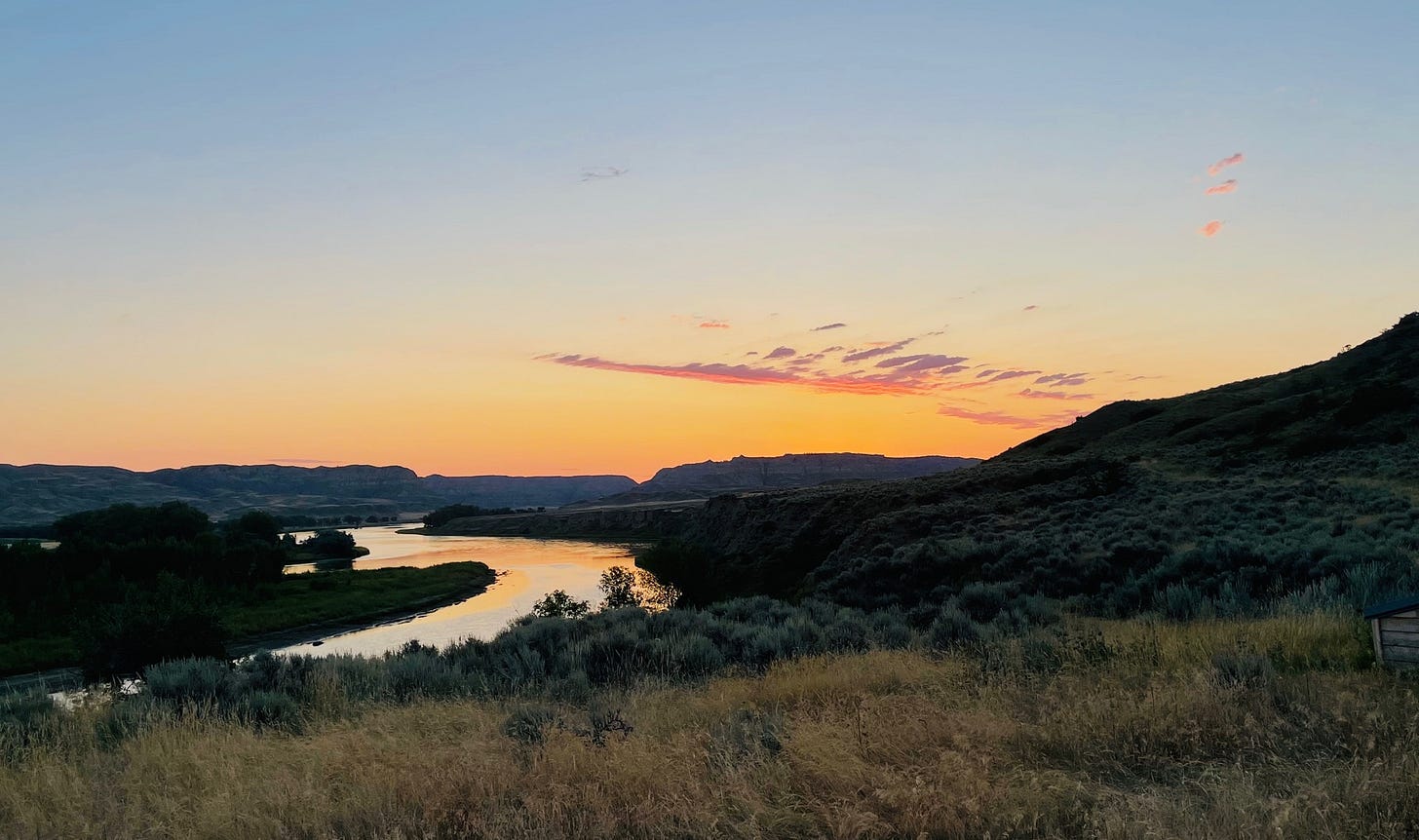When the guy I was seeing said that he wasn’t that into wildlife because wildlife was dead, we had already killed it all, it was hard to think of a response.
When I met Teddy, he was wearing a grill — the set of gold teeth you wear over your teeth.
He’s from Miami. He likes racing cars. If he was a multimillionaire, he’d buy a Ferrari.
I replay that conversation a lot in my head. He does too, I think.
“Except birds,” he said months afterwards, out of the blue. “I drove all the way across the country and all I saw were cows and birds.”
I want to tell him that he’s wrong, that his marathon trip to Burning Man and back in a tractor trailer towing an unsteady, half-built spirit wolf is not how a person views wildlife.
What do you think, I argue with him in my head, the bears and wolves and muskrats and otters and trouts and eagles and ravens all form a line when you get out west? You think they come stand by the side of the road? You think they’ll take a piss by you at the truck stop?
But you know what, before I went out to meet him at Burning Man, I took another, different trip out west, a trip to canoe down a river in Montana, and I stood at the top of a hill with Chris LaTray where there were indications of ancient teepees, and you could see exactly why — the river glinting below, the land rippling out into endless grassy hills in front of us. It was easy to imagine the entire Native society from that vantage point — the systems of communication over vast distances, the galloping herds, the hunts, the people, their homes, their lives.

The people who had stood at that vantage understood their world and everything about it.
And then, within a generation or two, white settlers came and sickness came and their land was taken and many died and the animals were killed and the entire ecosystem was thrown into chaos.
And now, in front of me, this vast gorgeous empty beautiful land.
We spent four days on the river and saw some lovely birds — cliff swallows and common nighthawks and bald eagles. And we saw many kinds of frogs and also some cows.
A loutish group canoeing just a few hours ahead of us killed a snake. I didn’t notice but Chris did. I only noticed that group’s fury, at each other, at the camp grounds, at seemingly everything around them. How could they be so angry, I wondered, in this beautiful place. And then I thought, “families,” because they seemed to all know each other and we’ve all been on a trying family trip. But then they killed the snake and I lost all my sympathy.
Even including the snake, now dead, the land was far emptier of wildlife than I had expected it to be, far quieter than I had anticipated.
When I drove to Burning Man, I started at my godparents’ house in Ashland, Oregon, making it a manageable 5-to-6 hour drive. First I drove through Oregon’s forests and mountains, then through California’s elegant pines, then Nevada’s rocky passes, then finally the desert. It was empty of wildlife when I drove down, and it was empty when I drove back — not a chipmunk! — though at one point I thought I might have seen a black bear out of the corner of my eye but I think that was hope.
I have a lot of hope. A lot of people have a lot of hope. After we canoed, my group stayed on the American Prairie Reserve, a unique place being developed to replicate the original American Prairie. People can will or sell their land to American Prairie — it’s totally optional of course, a private non-profit organization, but just the idea of having that open land returned to the wild upsets people so much you see signs around there protesting the spot.
They’re just getting going. They’ve got a couple of herds of buffalo and we didn’t see any. I saw a lot of grasshoppers, some wild horses, and way off in the distance, a river otter. It was good, seeing that wild river otter.

It feels good to have hope, to work towards a better future. And in its own way, it also feels good, like putting down a heavy pack, to look around, to see how empty our world is, how much is missing, how many ghosts.






The same people who think all the wildlife are dead tend to think there aren't any Indians left either. I have seen "the bears and wolves and muskrats and otters and trouts and eagles and ravens" and a couple of those I see almost every day, and a multitude of others. We've taken our hits, but plenty of us are still here.
I wanna see a wild otter so badly. They're in the Pine Barrens, but I'll probably have to kayak to see them. Maybe this autumn. Teddy is right in a way, but we have a lot left that we can save. Maybe one day the highways will return to nature and we'll see animals from bullet trains. I hope so.